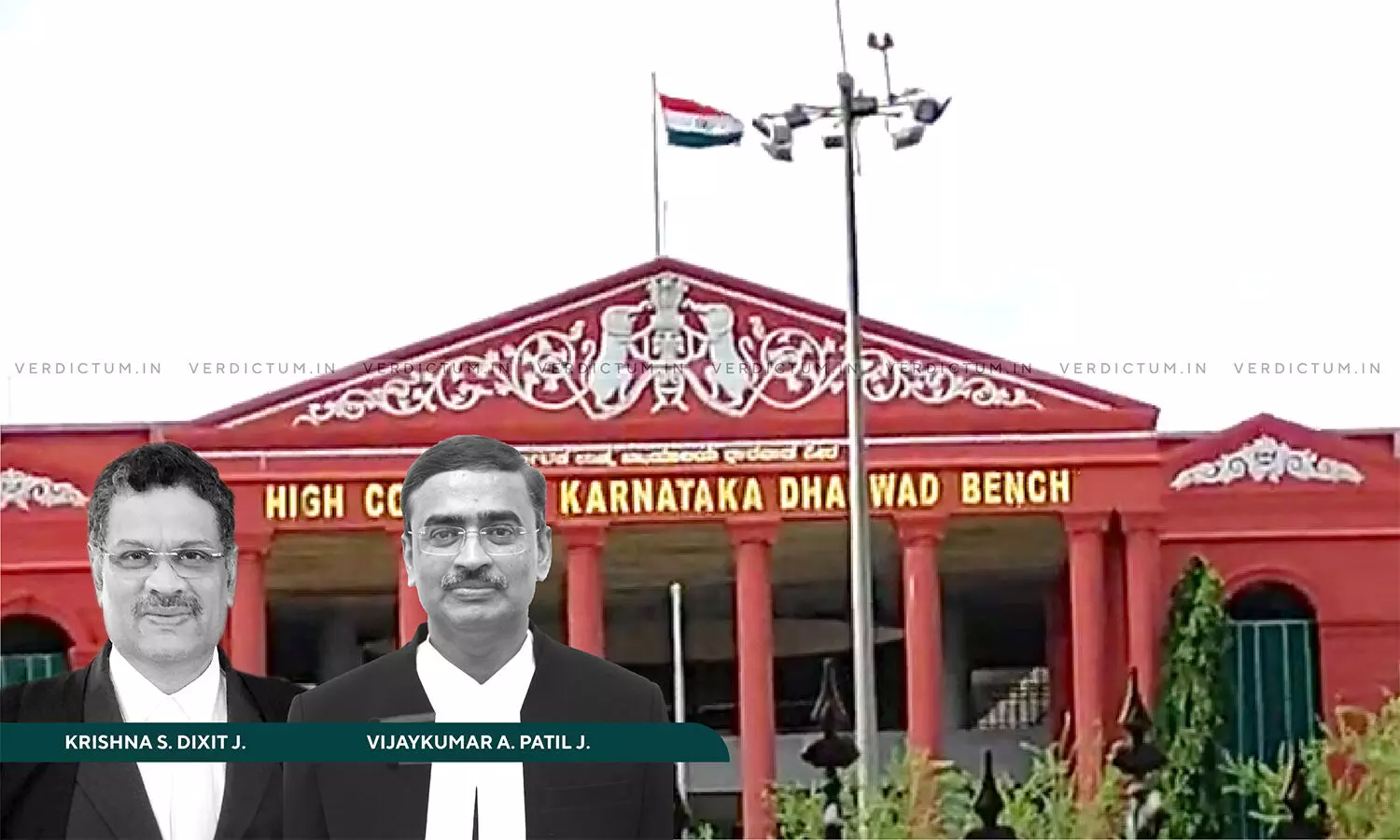
'Daughter In Law' Not Included In Definition Of 'Family': Karnataka HC Rejects Plea To Read Down Civil Services Compassionate Appointment Rule
 |
|The Karnataka High Court refused to read down Rule 2(b)(ii) of the Karnataka Civil Services (Appointment on Compassionate Grounds) (Amendment) Rules, 2021 which does not include a daughter-in-law in the definition of 'family.'
The Court rejected a petition filed by a daughter-in-law seeking compassionate appointment in the state's Rural Drinking Water and Sanitation Department holding that the statutory definition of 'family' does not include a daughter-in-law.
The petition challenged an earlier decision by the Karnataka State Administrative Tribunal, which had denied the request for a directive to the government for such an appointment.
A Division Bench of Justice Krishna S. Dixit and Justice Vijaykumar A. Patil said, “The law maker as a matter of policy has framed the definition of ‘family’ to include specific relatives of the employee dying in harness and the daughter-in-law is not one of them. It is not within the domain of Courts to expand or constrict a statutory definition.”
Advocate Shivraj S. Balloli appeared for the Petitioner and Advocate G.K. Hiregoudar appeared for the Respondent.
The petitioner's counsel argued that Rule 2(b)(ii) of the Karnataka Civil Services (Appointment on Compassionate Grounds) (Amendment) Rules, 2021, should be interpreted to include a daughter-in-law in the definition of 'family.' If this interpretation were accepted, it would have entitled the petitioner to a compassionate appointment.
However, the government contested the petition, emphasizing that the legislative rules crafted by the lawmakers should be respected. They argued that since the lawmakers had intentionally excluded daughter-in-laws from the definition of 'family,' any attempt to include them would essentially be an improper alteration of the law.
The Court dismissed the petitioner's claims, stating that the doctrine of "reading down"—which involves adjusting legal definitions to fit a specific case—was not applicable here. This doctrine is typically used to refine laws that are too broad or conflict with higher legal standards. In this case, since the legal provision was not challenged on constitutional or statutory grounds, there was no basis for applying this doctrine. The Court added, “The doctrine of reading down may be invoked and applied if the statute is silent, ambiguous or admits more than one interpretation. But where it is express, and clearly mandates to take certain action or to mean certain things, the function of the Court is to interpret it plainly.”
The Court said, “For the purpose of compassionate appointment, who all can lay a claim, is a matter of public policy that falls within the domain of law-maker, and the Courts being his coordinate branch, cannot run a race of opinions with him. A greater wisdom lies in confining to the conventional limits of judicial process, leaving the legislative one to the other coordinate branch, than otherwise. More is not necessary to specify.”
Thus, the Court dismissed the petition, reinforcing that such policy decisions are the prerogative of the lawmakers.
Cause Title: Priyanka Halamani v. The State of Karnataka & Ors., [2024:KHC-D:12880-DB]
Click here to read/download Order